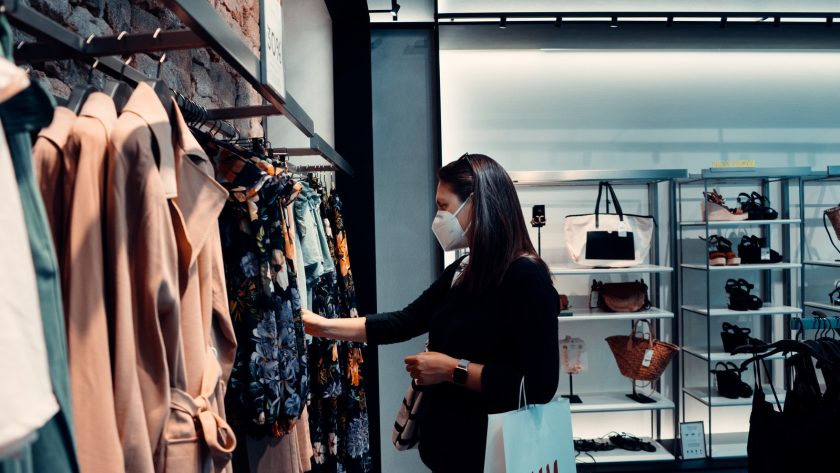October is Mental Health Awareness Month, so we spoke to a former River Island retail manager and one former Hollister sales associate to reflect on the experiences of working in the retail sector during the pandemic. They also discussed how the experience affected their mental health, and the difficulties they faced.
What was your biggest challenge working in retail during Covid-19? How did you overcome it?
Manager: “It was sometimes quite difficult as a manager, to control the various protective measures in effect, deal with staff and the public to make sure that social distancing was being observed and that PPE was being used and worn. It was difficult to balance customer satisfaction and all this while also managing the various protective measures in place. The limited space in the stores and closed fitting rooms often caused frustration for customers, particularly as the pandemic raged. As a manager, I had to stress the importance of these restrictions because I didn’t want my staff, nor any member of the general public, to be infected.”
Associate: “The greatest challenge for me was not knowing when or if the shop would reopen. Many times, government rules were in place within 24 hours. This meant that you often didn’t know if you would need to be there the next day. Additionally, my job was with an American company that had a Dutch store. This meant that we had to follow both American and local regulations. This added an additional layer of uncertainty to the situation. Part-time meant that I was not sure if we would receive a monthly salary or how it would be calculated, as my work hours varied each week. There was not much I could do but to be flexible and adapt.”
Did you feel your mental health was affected by working in the retail industry during the pandemics?
Manager: “I believe there was definitely an increased level of stress and nervousness going to work each day, particularly as the number of cases began to rise before lockdowns. As the restrictions were lifted, it became easier. Staff and customers became more used to the new norm. However, busy days brought about changes that affected my mood and mentality. When you were focusing on infection prevention in the store, it was often difficult to concentrate on work and productivity.”
Associate: “Working in retail was more stressful than usual due to the additional element of making sure customers followed the Covid-19 rules. For example, social distancing. Retail is not an industry where you can tell people what they should do. So telling them to follow certain rules took some adjustment.”
What do you think about the way mental health is handled in retail? Is there a way to improve it?
Manager: “I believe the retail industry has improved its attitude towards mental health. The pandemic has brought these issues to a sharper focus. However, there are still many things that need to be done. There are expectations for staff and managers when running a shop. However, these expectations can be unrealistic, especially in Covid-19 where they fail to take into account the many situations people are facing. It is important that staff feel comfortable enough to approach management about their mental health. It’s also important to make allowances where possible. It is equally important that members of management have a support system to help them with their mental health. While productivity and the running of the shop are important, it’s equally important that all staff members have a supportive environment that encourages cooperation, understanding, and compromise. This all begins with the attitude and willingness of management to work with staff.”
Associate: “I felt the company that I worked for was taking various measures to raise awareness about mental health. For example, they had posters in the break room and a week-long mental health week. Although it seems great and progressing at first, no tangible actions were taken to ask employees their feelings or send anonymous surveys to find out how they feel.
Retail should allow people to take a day off to care for their mental health. Higher management will give you a day off for a cold/flu but not the same level empathy if your mental illness is reported. It is expected that you will smile at customers and come to work every day. You should consider mental health a valid reason for being unable to work.
The last thing I would add is that it could be improved by having an open discussion about mental health at work and offering support in therapy to those who are in need, which may be financially compensated by the company.





